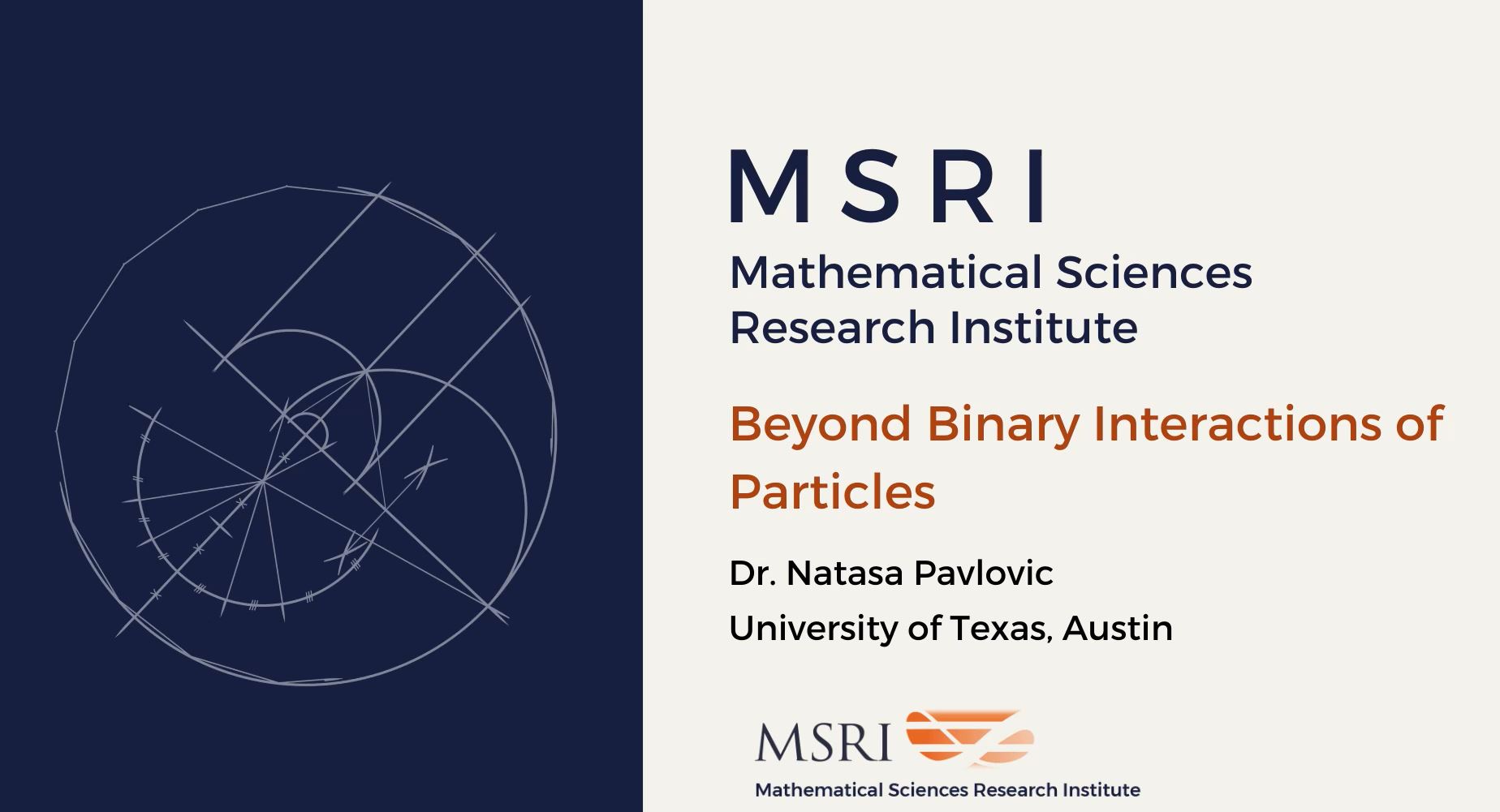Abstract
In this talk we shall discuss dynamics of systems of particles that allow interactions beyond binary, and their behavior as the number of particles goes to infinity. In particular, an example of such a system of bosons leads to a quintic nonlinear Schrodinger equation, which we rigorously derived in a joint work with Thomas Chen. An example of a system of classical particles that allows instantaneous ternary interactions leads to a new kinetic equation that can be understood as a step towards modeling a dense gas in non-equilibrium. We call this equation a ternary Boltzmann equation and we rigorously derive it in a recent work with Ioakeim Ampatzoglou. Time permitting, we will also discuss the recent work with Ampatzoglou on a derivation of a binary-ternary Boltzmann equation describing the kinetic properties of a dense hard-spheres gas, where particles undergo either binary or ternary instantaneous interactions, while preserving momentum and energy. An important challenge we overcome in deriving this equation is related to providing a mathematical framework that allows us to detect both binary and ternary interactions. Furthermore, this work introduces new algebraic and geometric techniques in order to eventually decouple binary and ternary interactions and understand the way they could succeed one another in time.
